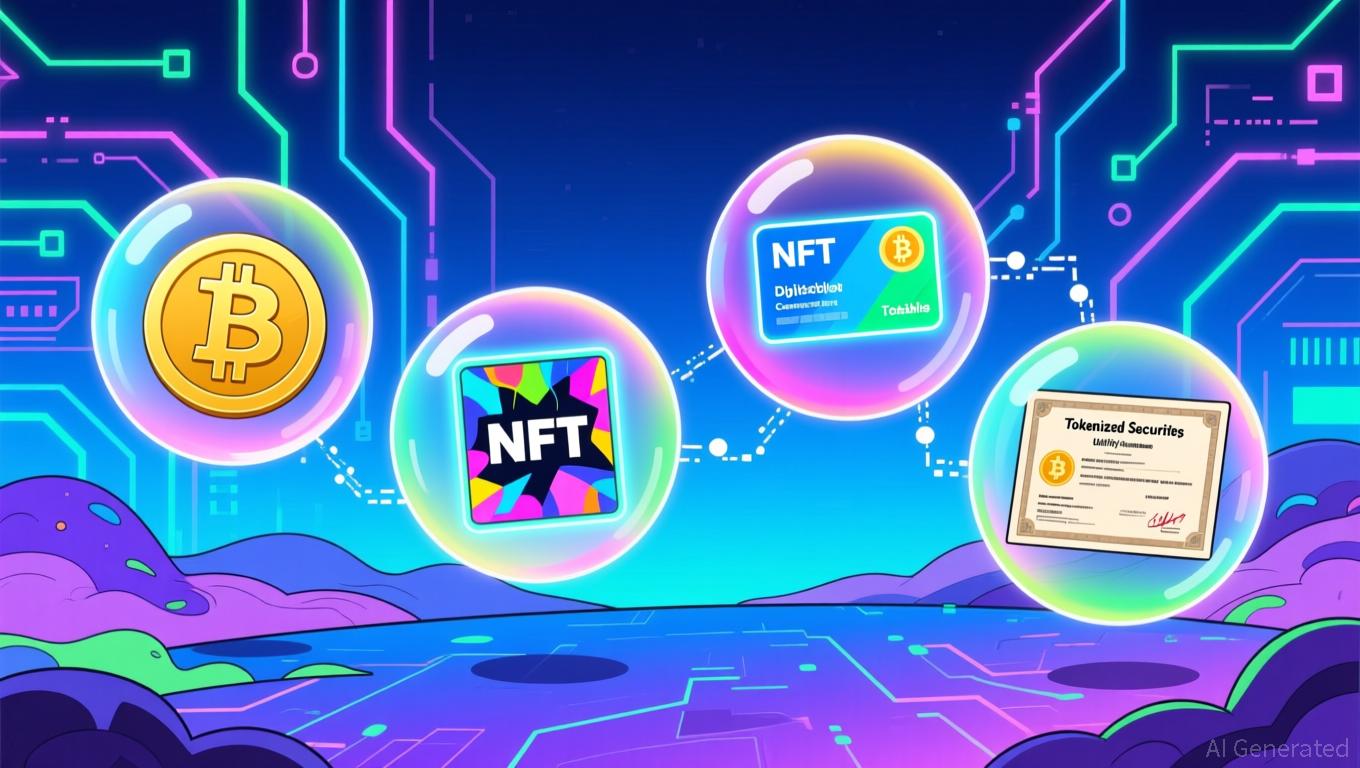SEC's Classification Strikes a Balance Between Fostering Innovation and Safeguarding Investors
- The SEC is advancing a "token taxonomy" to classify crypto assets under securities law, potentially reshaping digital asset regulation. - The framework, rooted in the Howey Test, categorizes tokens into four groups, with most not classified as securities. - Collaboration with Congress aims to resolve jurisdictional disputes via bills like the CLARITY Act, clarifying CFTC and SEC oversight roles. - Nasdaq's tokenized trading platform application aligns with efforts to position the U.S. as a global crypto
The U.S. Securities and Exchange Commission (SEC) is advancing a long-awaited "token taxonomy" designed to clarify how cryptocurrencies are treated under securities regulations, a step that could reshape digital asset oversight. Chair Paul Atkins introduced the proposal at the Federal Reserve Bank of Philadelphia's Fintech Conference, stressing that the framework is based on the Howey Test—a 1946 Supreme Court decision used to determine what constitutes an investment contract, according to a
Atkins explained that digital commodities associated with decentralized networks, collectibles such as NFTs, and utility tokens like memberships or event tickets would be excluded from securities regulation, according to the

This initiative is part of a broader push to update crypto regulation, including the SEC's "Project Crypto," which is intended to simplify compliance for both developers and investors, according to a
At the same time, the SEC is working more closely with Congress. Several legislative proposals, including the House-approved CLARITY Act and various Senate bills, aim to clarify the regulatory boundaries between the SEC and CFTC regarding digital assets, as reported in a
This regulatory evolution is also driving innovation in the market. Nasdaq has recently filed a pioneering application with the SEC to create a tokenized trading platform, which would enable securities to be settled via blockchain, as outlined in a
Atkins made it clear that the introduction of the new taxonomy does not mean enforcement will be relaxed. "Fraud is fraud," he asserted, reaffirming the SEC's dedication to addressing wrongdoing, according to a
As the SEC works to finalize its new guidelines, industry participants are watching closely to see how the taxonomy will interact with upcoming laws and market changes. With Congress targeting the passage of comprehensive crypto legislation by the end of 2025, according to a
---
Disclaimer: The content of this article solely reflects the author's opinion and does not represent the platform in any capacity. This article is not intended to serve as a reference for making investment decisions.
You may also like
Bitcoin News Update: Cash App's Immediate Bitcoin Transactions Indicate Move Toward Practical Use
- Block Inc. launched instant Bitcoin transfers for 58M Cash App users, advancing crypto's shift from speculation to daily commerce. - Square Bitcoin and BitKey hardware wallets expand crypto accessibility, enabling 4M+ merchants to accept BTC via Lightning Network. - Jour Cards and Exodus Movement's growth highlight crypto's real-world utility, with stablecoins addressing volatility for merchants. - Regulatory challenges and infrastructure scalability remain hurdles, but instant payments signal crypto's m

Bitcoin Updates: Japanese Regulators Respond as Corporations Increase Bitcoin Adoption
- Japan Exchange Group (JPX) plans stricter oversight for firms shifting to crypto treasuries, requiring fresh approvals akin to IPOs to curb risks while preserving innovation. - Metaplanet, Japan's largest digital-asset treasury operator, saw shares drop 75% since 2024 despite holding 30,823 BTC, highlighting market volatility and governance concerns. - Global corporate Bitcoin adoption rose 200% YoY, but Japan's regulatory shift contrasts with Hong Kong/Australia's bans, as firms like Convano Inc. push c

Bitdeer to raise $400 million through convertible senior notes offering